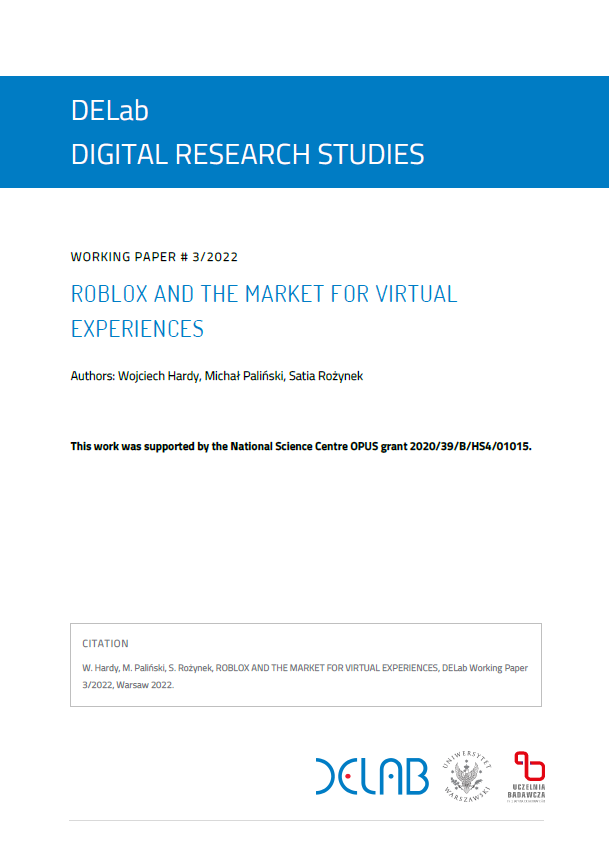Digital entertainment moves away from one-time events and games towards sustainable experiences that can be shared with others. These types of virtual ecosystems also support their own economies with exchange of virtual currency, digital items and user-generated content. One such platform is Roblox, which as of April 2021 had more than 200 million unique users monthly. Roblox is a platform for virtual experiences built by the participating community. It also facilitates events ranging from in-platform concerts of established artists to fashion shows with branded items. We provide the first quantitative study of this ecosystem, analysing the determinants of virtual experiences’ popularity using data on thousands of in-platform titles, and tracking some of them over time. We build upon the literature on success of and engagement in video games and the much debated metaverse concept. Our results show that frequent experience updates and incentives in the form of badges or in-game items are crucial for a virtual experience to grow and sustain an active player base. Interestingly, the maximum number of players in an experience instance and the and the often-discussed interoperability of experiences are less important than expected.
Working paper # 3/2022
Roblox and the Market for Virtual Experiences

Citation:
W. Hardy, M. Paliński, S. Rożynek, ROBLOX AND THE MARKET FOR VIRTUAL EXPERIENCES, DELab Working Paper 3/2022, Warsaw 2022.
Share



